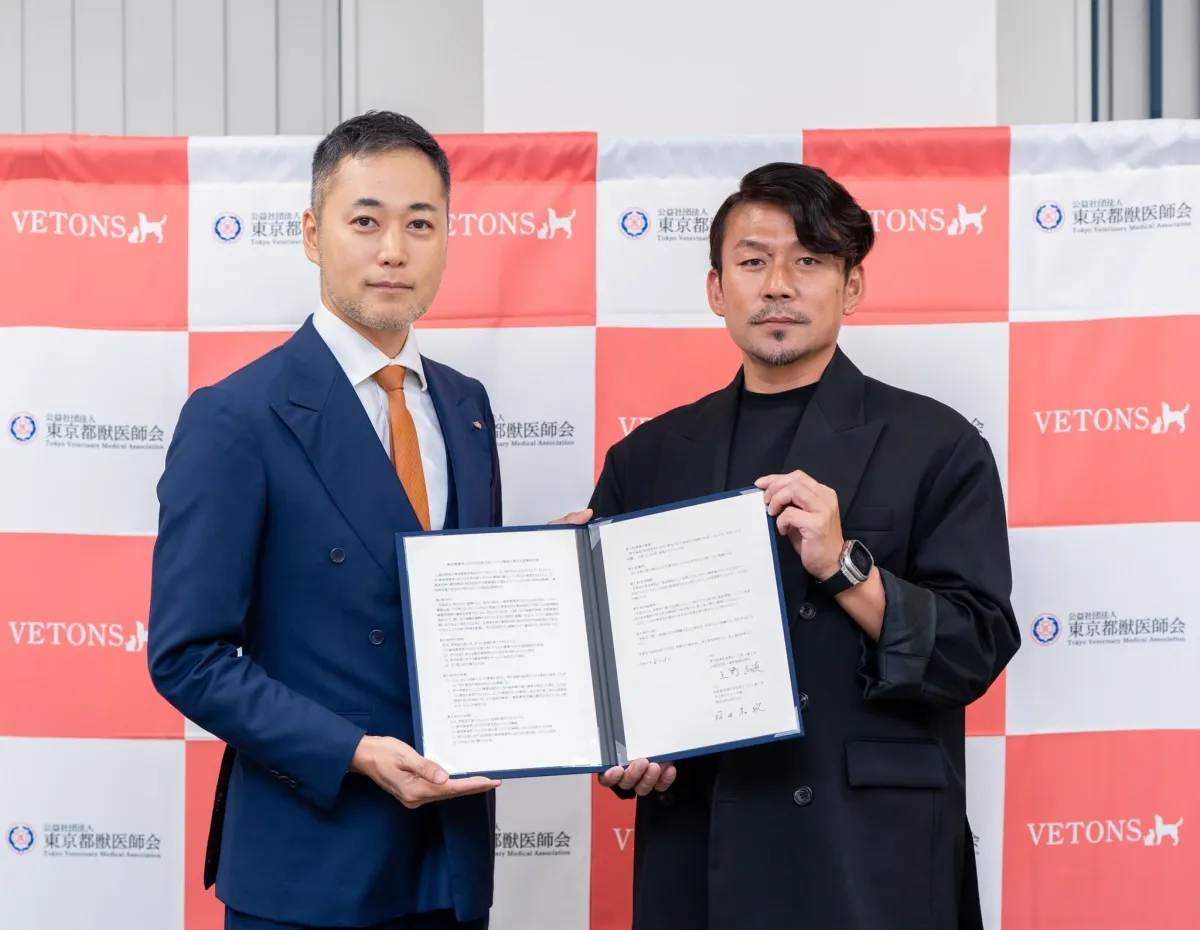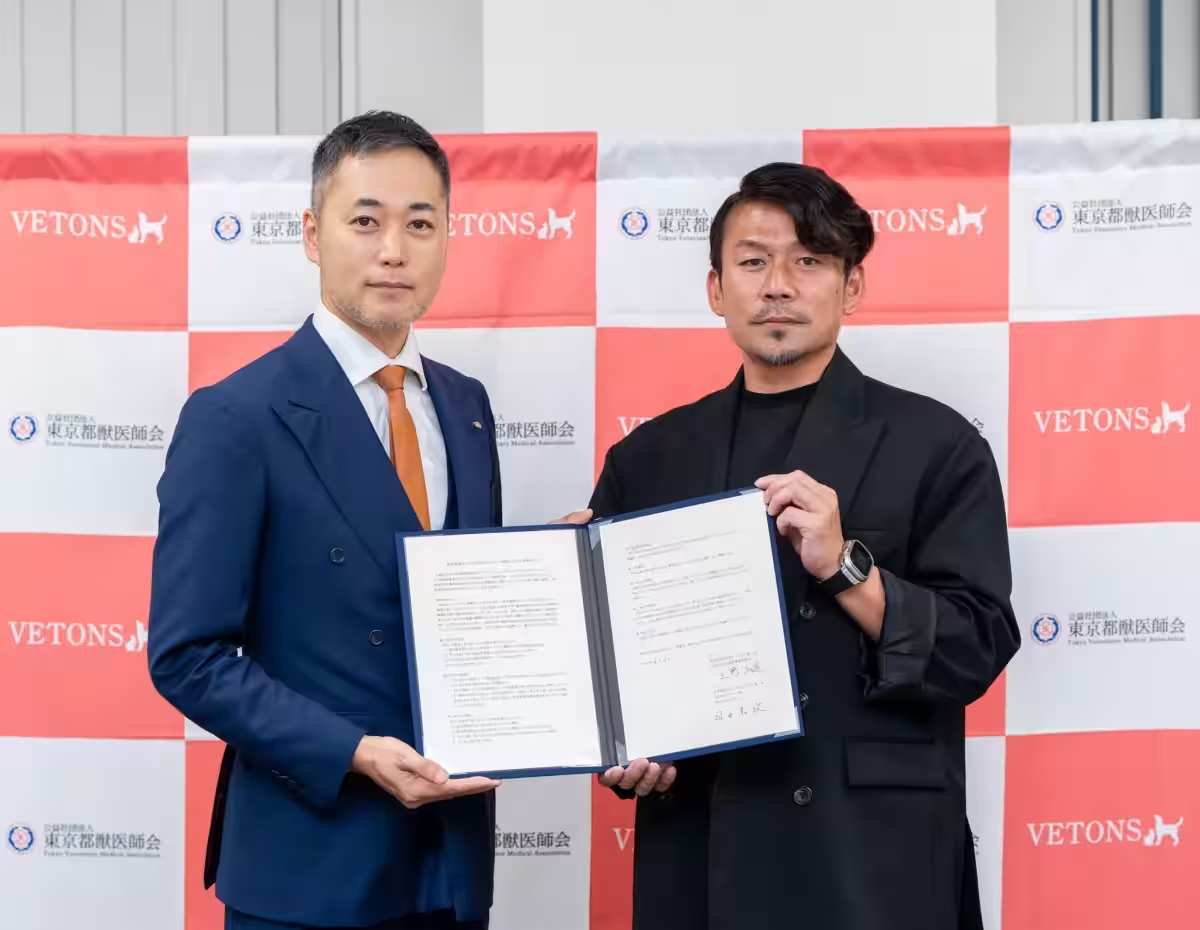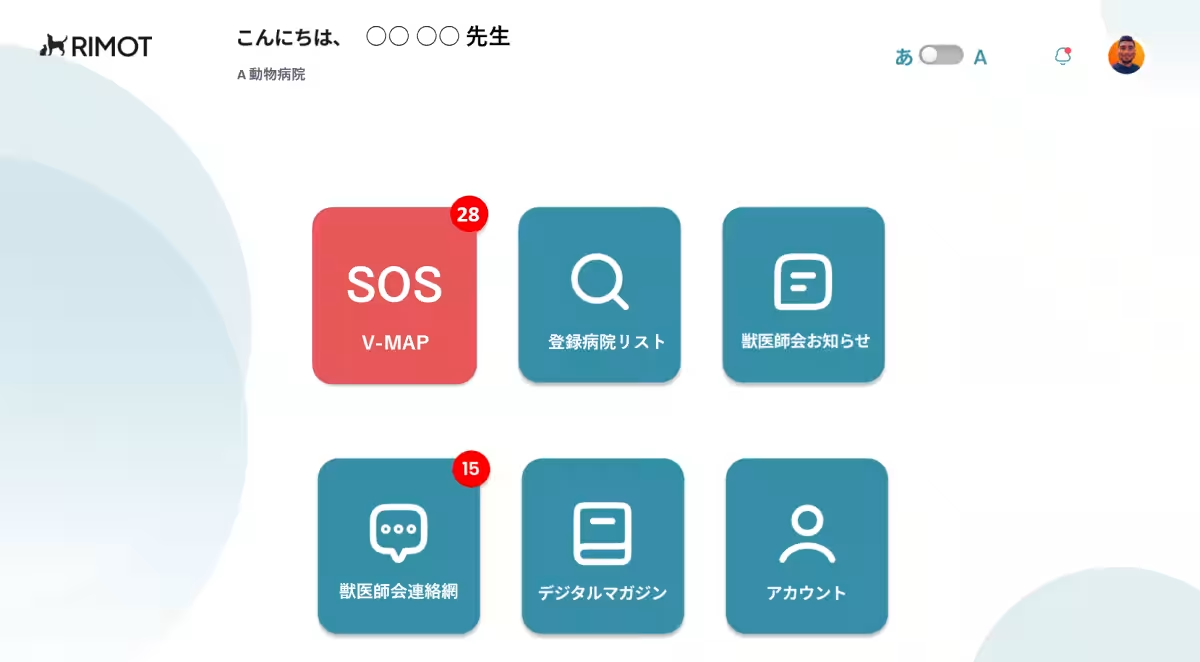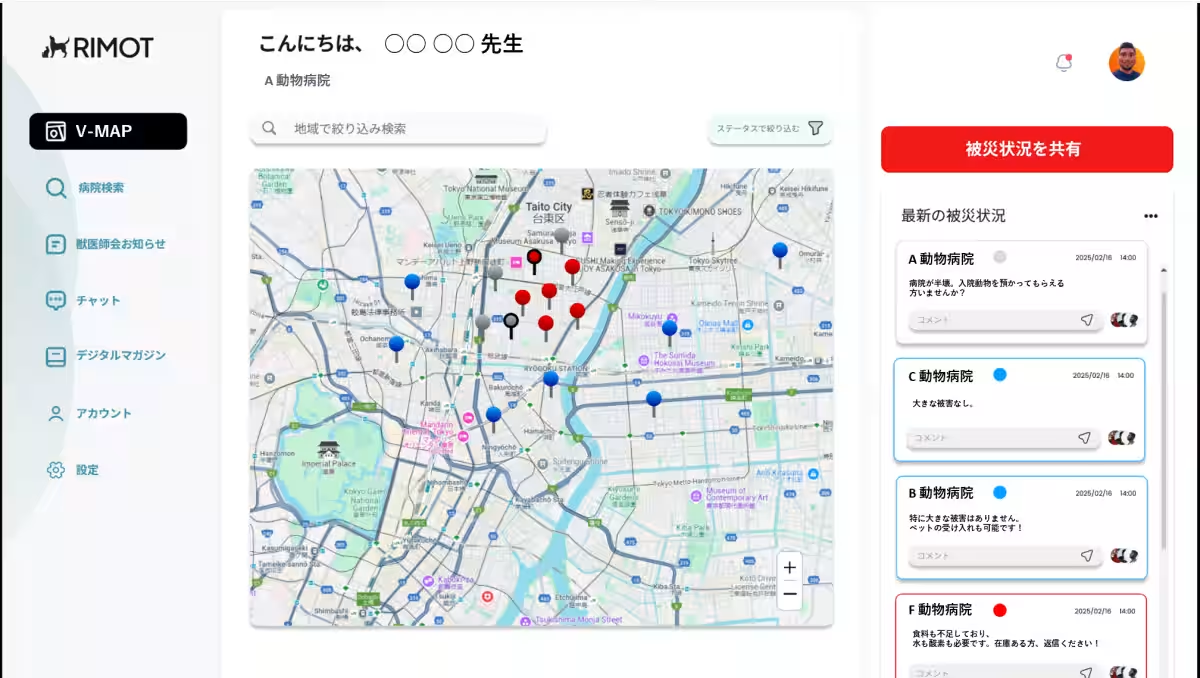

Tokyo Veterinary Association and VETONS Unite for Disaster Relief System in Veterinary Medicine
Creating a Resilient Disaster Relief System for Veterinary Medicine
In a remarkable initiative, the Tokyo Veterinary Association, led by President Hiromichi Ueno, has partnered with VETONS, headquartered in Meguro, Tokyo, to develop a disaster mutual assistance system tailored for veterinary medicine. This significant collaboration, formalized through a recently signed agreement, aims to ensure that veterinary services remain accessible even amidst the challenges posed by disasters.
Background and Purpose of the Agreement
The genesis of this partnership stems from VETONS’ firsthand observations during the Noto Peninsula earthquake in 2024. The traumatic experiences faced by veterinarians, pet owners, and their beloved pets during the disaster underscored the urgent need for a robust support framework. As Japan braces for potential catastrophes such as the Nankai Trough earthquake and the Tokyo metropolitan area's anticipated seismic events, strengthening the veterinary industry's disaster response capabilities has become paramount.
Key Pillars of the Collaboration
This agreement revolves around three focal points designed to enhance the veterinary support system in times of crisis:
1. Promotion of Pet Disaster Preparedness
Establishing a seamless coordination system between disaster response efforts and veterinary services to safeguard the well-being of both pets and their owners during emergencies.
2. Visibility of Damage and Support Requests
Creating a structure that allows for immediate assessment and sharing of information regarding animal hospitals' conditions and support needs, facilitating efficient cooperation among relevant stakeholders.
3. Establishing Mutual Assistance Networks
Fostering a cooperative network among animal hospitals in Tokyo to ensure stable veterinary services during disasters.
Future Expansion and Developments
With this agreement as a springboard, VETONS plans to collaborate with veterinary associations across Japan to build a nationwide disaster response network. Customized support tailored to regional needs, operational assistance, and modifications to the platform will be pursued to develop a practical disaster response system.
Additionally, a disaster preparedness application for pet owners is on the horizon. This app will feature shelter information, local government contacts, and a function to share information about pets' safety during disasters. It is designed to promote preparedness habits among pet owners.
Remarks from Key Figures
President Hiromichi Ueno, Tokyo Veterinary Association
President Ueno expressed the association's commitment to forming a swift response framework for veterinary care in large-scale disasters, citing the significance of this unprecedented initiative in Japan. He emphasized the increasing societal demand for support that includes both humans and their animal companions during crises, echoing the government’s focus on inclusive disaster preparedness in recent national plans.
Kazumasa Hada, CEO of VETONS
Kazumasa Hada shared his personal experience during the Noto Peninsula earthquake. His extensive support activities in the affected areas highlighted the difficulties faced by pet owners during disasters. Hada expressed deep gratitude for the collaboration with the Tokyo Veterinary Association and the shared vision to enhance disaster response in the veterinary sector.
Yoshihiro Hayasaka, Tokyo Metropolitan Assembly Member
Mr. Hayasaka, known for his dedication to disaster prevention, congratulated the establishment of the veterinary medical support network. He highlighted the importance of safeguarding lives during disasters, acknowledging pets as family members and the need for frameworks that protect both human and animal lives. Hayasaka praised this collaboration for filling an essential gap in disaster response in animal healthcare.
Overview of RIMOT
Central to this initiative is RIMOT, a browser-based platform designed for veterinary institutions. It facilitates crucial functions such as safety checks, information sharing, and support requests during emergencies, allowing for a reliable veterinary care system to be maintained. RIMOT is expected to optimize response actions through training and information sharing even in non-disaster periods. Key features of RIMOT include:
- - V-MAP: A mapping tool that displays the disaster conditions of each veterinary clinic.
- - Veterinary Association Communication Network: A communication system within and between veterinary associations to share information quickly.
- - Registered Hospital List: Access to the details of participating veterinary hospitals, ensuring prompt assistance.
- - Digital Magazine: The “Huage” digital magazine, which provides valuable animal and human health information.
The RIMOT platform will continue to evolve, offering new content and enhancing support capabilities.
Company Overview
VETONS, founded on April 3, 2024, is committed to improving disaster response within the veterinary field, driven by the conviction that animals are integral to human lives. Their headquarters is located at 5F Nakameguro F.S. Building, 3-6-2 Nakameguro, Meguro, Tokyo.



Topics Health)










【About Using Articles】
You can freely use the title and article content by linking to the page where the article is posted.
※ Images cannot be used.
【About Links】
Links are free to use.